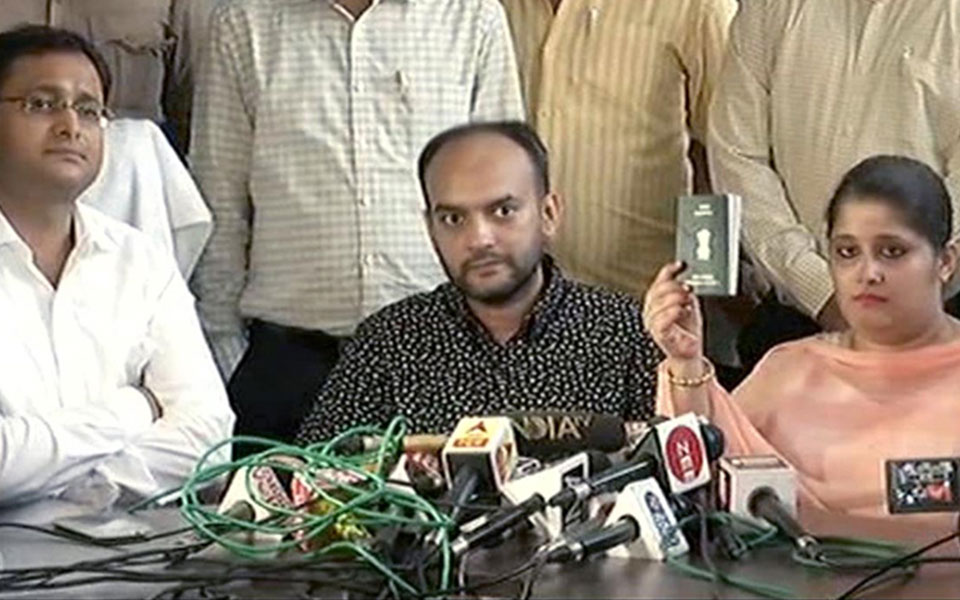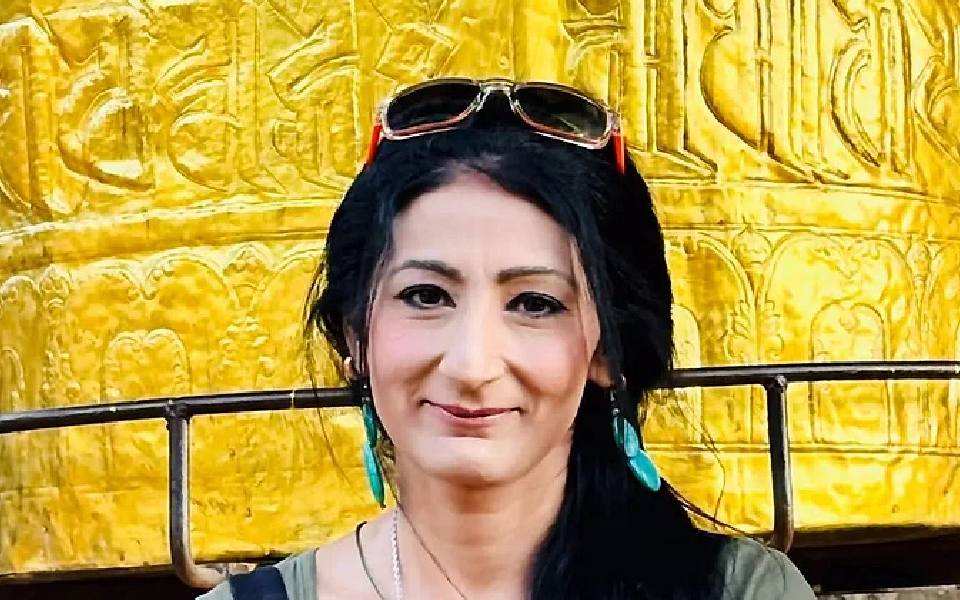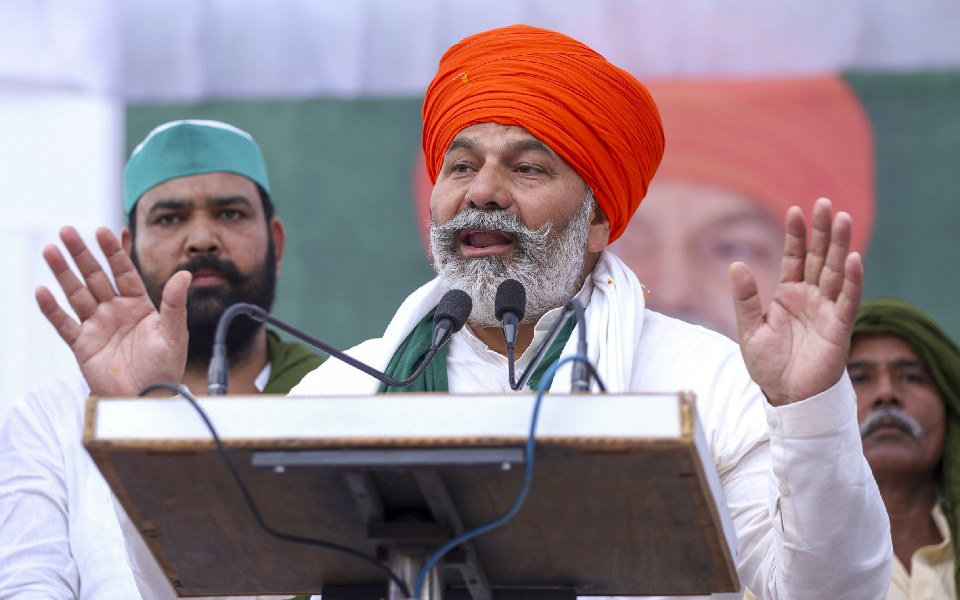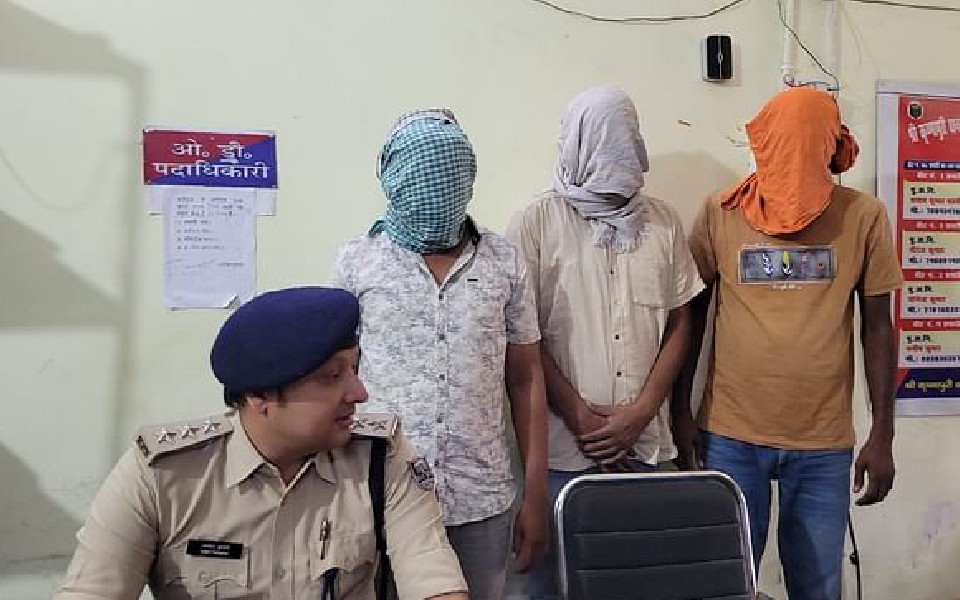Lucknow, June 21: A Hindu woman married to a Muslim got her passport on Thursday, following External Affairs Minister Sushma Swaraj's intervention, barely 24 hours after a passport officer rejected her application on the grounds that she had not changed her surname.
Regional Passport Official Piyush Verma on Thursday gave the passport to Tanvi Sethi while the passport of her husband Mohammad Anas Siddiqui was renewed and also handed over.
Sethi alleged misbehaviour by passport officer Vikas Mishra on Wednesday when she had gone to the passport office here. She said her passport application was rejected on the grounds that she had not changed her surname even after 12 years of marriage to a Muslim man.
She later tweeted to the Prime Minister's Office (PMO) and Sushma Swaraj with her complaint. Both responded to her plea.
Passport officer Mishra has since been transferred to Gorakhpur and an explanation has been sought from him, an official told IANS.
Sethi and her husband said they were very happy at the alacrity with which the PMO and the MEA responded.
The officer accused of misbehaviour, however, denied the charges and said he had only told Sethi of the rules laid down in such cases.
Senior officials said that old rules mandated that a marriage certificate be produced in cases of inter-religious marriages during the passport application procedure, though adding that the officer was not right in ill-treating the woman and shouting at her.
Let the Truth be known. If you read VB and like VB, please be a VB Supporter and Help us deliver the Truth to one and all.
London/New Delhi: Professor Nitasha Kaul, a London-based academic, announced on May 18, 2025, via a social media post that her Overseas Citizenship of India (OCI) card has been cancelled by the Indian government. She described the move as a "bad faith, vindictive, cruel example of transnational repression" intended to punish her for her scholarly work critical of the Modi government's policies concerning minorities and democracy.
The cancellation follows an incident in February 2024 when Professor Kaul, who holds a British passport and held an OCI card, was denied entry into India upon arrival at Bengaluru airport. She had been invited by the then Congress-led Karnataka state government to speak at a conference on "The Constitution and Unity in India."
According to an image of the letter shared by Professor Kaul, the Indian government stated that it had been "brought to the notice of the Government of India that you have been found indulging in anti-India activities, motivated by malice and complete disregard for facts or history." The letter further accused her of regularly targeting India and its institutions on matters of India's sovereignty through "numerous inimical writings, speeches and journalistic activities at various international forums and on social media platforms."
Professor Kaul, who is a Professor of Politics, International Relations, and Critical Interdisciplinary Studies and the Director of the Centre for the Study of Democracy (CSD) at the University of Westminster, London, vehemently rejects these accusations. She stated she had provided a 20,000-word response to what she termed the government's "ridiculous inanity about ‘anti-India’," but the OCI was cancelled through a "rigged process."
In her social media posts, Professor Kaul lamented the decision, questioning how the "mother of democracy" could deny her access to her mother in India. She characterized the action as stemming from "thin-skinned, petty insecurity with no respect for well-intentioned dissent."
The February 2024 denial of entry had already sparked controversy. At the time, immigration officials reportedly cited "orders from Delhi" without providing formal reasons, though Professor Kaul mentioned informal references to her past criticism of the Rashtriya Swayamsevak Sangh (RSS). The Ministry of External Affairs had then responded by stating that the entry of foreign nationals into India is a "sovereign decision." Unofficial government sources had indicated that a "preventive lookout circular" was issued against her due to her alleged "pro-separatist" and "anti-India" stance on Kashmir.
The BJP in Karnataka had criticised the state government for inviting her, labelling her an "anti-India element." Conversely, the then-Karnataka government and various international human rights organizations and academic bodies had condemned the denial of entry.
Professor Kaul has been an outspoken commentator on Indian politics, including the abrogation of Article 370 in Jammu and Kashmir, and has testified before international bodies such as the US Congress on human rights in the region. She maintains her work is academic and pro-democracy, not anti-India.
The cancellation of her OCI card effectively bars her from entering India, a country to which she has personal and academic ties. This incident adds to a growing list of academics, journalists, and activists of Indian origin whose OCI status has been revoked or who have been denied entry to India in recent years, raising concerns about freedom of speech and dissent. Reports indicate that over 100 OCI cards were cancelled by the Indian government between 2014 and May 2023. Furthermore, in 2021, new rules were introduced requiring OCI cardholders to obtain special permission for activities such as research and journalism.





